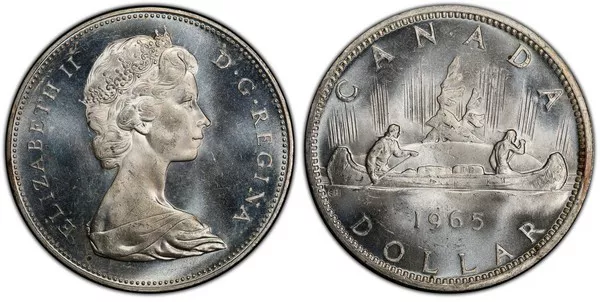The Swiss franc has long been considered a safe haven currency, especially during times of global economic uncertainty. There are several reasons why the Swiss franc is seen as a reliable store of value, and in this article, we will explore some of these key factors.
1. Switzerland’s political stability
Switzerland is known for its political stability, having maintained a neutral stance in world affairs for over 200 years. This neutrality has helped to create a stable and predictable political environment, which is essential for economic growth and stability. Investors feel more confident investing in countries that have stable political systems, and Switzerland’s political stability is one reason why the Swiss franc is considered a safe haven currency.
- Switzerland has a long history of political neutrality, which has helped to create a stable and predictable political environment.
- Investors feel more confident investing in countries with stable political systems.
- Switzerland’s political stability is one reason why the Swiss franc is considered a safe haven currency.
2. Switzerland’s strong economy
Switzerland has a small but prosperous economy, driven mainly by its manufacturing and service sectors. The country has a highly skilled workforce and a reputation for quality and precision, which has helped it to become a global leader in industries such as pharmaceuticals, banking, and watchmaking.
- Switzerland’s small but prosperous economy is driven by its manufacturing and service sectors.
- Its highly skilled workforce and reputation for quality and precision have helped it become a global leader in various industries.
- A strong economy is another reason why the Swiss franc is considered a safe haven currency.
3. The Swiss National Bank’s monetary policy
The Swiss National Bank (SNB) is the central bank of Switzerland and is responsible for maintaining the country’s monetary policy. The SNB has a reputation for being conservative and cautious, which has helped to maintain the value of the Swiss franc.
- The Swiss National Bank is responsible for maintaining Switzerland’s monetary policy.
- The bank has a reputation for being conservative and cautious.
- This approach has helped to maintain the value of the Swiss franc.
4. The Swiss franc’s low inflation rate
The Swiss franc has one of the lowest inflation rates among developed countries, which means that its purchasing power remains relatively constant over time. This stability makes it an attractive option for investors who want to avoid currency fluctuations and preserve their wealth.
- The Swiss franc has one of the lowest inflation rates among developed countries.
- A low inflation rate helps to maintain the purchasing power of the currency over time.
- This stability makes it an attractive option for investors who want to avoid currency fluctuations and preserve their wealth.
5. Geopolitical tensions
Geopolitical tensions can cause instability in financial markets, leading investors to seek safe haven currencies such as the Swiss franc. For example, during times of global uncertainty such as the COVID-19 pandemic, investors turned to the Swiss franc as a safe haven asset.
- Geopolitical tensions can cause instability in financial markets.
- During times of global uncertainty, investors turn to safe haven currencies such as the Swiss franc.
- The COVID-19 pandemic is an example of a global crisis that led to increased demand for the Swiss franc as a safe haven asset.
6. Banking secrecy laws
Switzerland has historically been known for its banking secrecy laws, which provide a high level of privacy and protection for investors’ assets. This has helped to create a sense of trust and security among investors and has made Switzerland a popular destination for wealthy individuals and companies.
- Switzerland’s banking secrecy laws provide a high level of privacy and protection for investors’ assets.
- This has helped to create a sense of trust and security among investors, making the Swiss franc an attractive option as a safe haven currency.
- However, recent international pressure has led to some changes in these laws.
7. Diversification benefits
Investors often seek to diversify their portfolios to reduce risk and protect against market volatility. Adding Swiss francs to a portfolio can provide diversification benefits because the currency has a low correlation with other major currencies such as the US dollar and the euro.
- Diversifying a portfolio can help reduce risk and protect against market volatility.
- The Swiss franc has a low correlation with other major currencies, providing diversification benefits to investors.
- This diversification benefit further reinforces the Swiss franc’s status as a safe haven currency.
8. Historical performance
Over the years, the Swiss franc has demonstrated a strong track record of maintaining its value during times of economic uncertainty. For example, during the global financial crisis of 2008, the Swiss franc appreciated significantly against other major currencies such as the US dollar and the euro.
- The Swiss franc has a strong track record of maintaining its value during times of economic uncertainty.
- During the global financial crisis of 2008, the Swiss franc appreciated significantly against other major currencies.
- This historical performance adds to the perception of the Swiss franc as a reliable store of value.
In conclusion, the Swiss franc is considered a safe haven currency due to several factors, including Switzerland’s political stability, strong economy, conservative monetary policy, low inflation rate, and its ability to weather geopolitical tensions. These factors have helped to create a reliable store of value that investors turn to during times of economic uncertainty. The Swiss franc is likely to remain a safe haven currency for the foreseeable future, providing investors with a stable and secure investment option.
Related Topics:
- Why the Swiss Franc is Called CHF?
- What is CHF in foreign currency?
- What are the risk factors for CHF



























